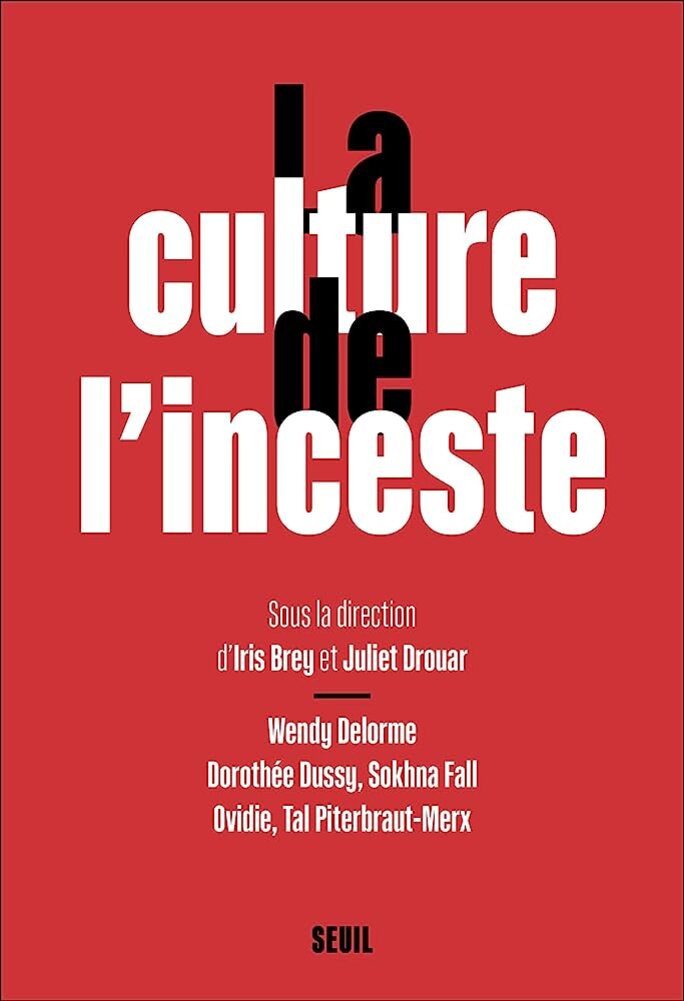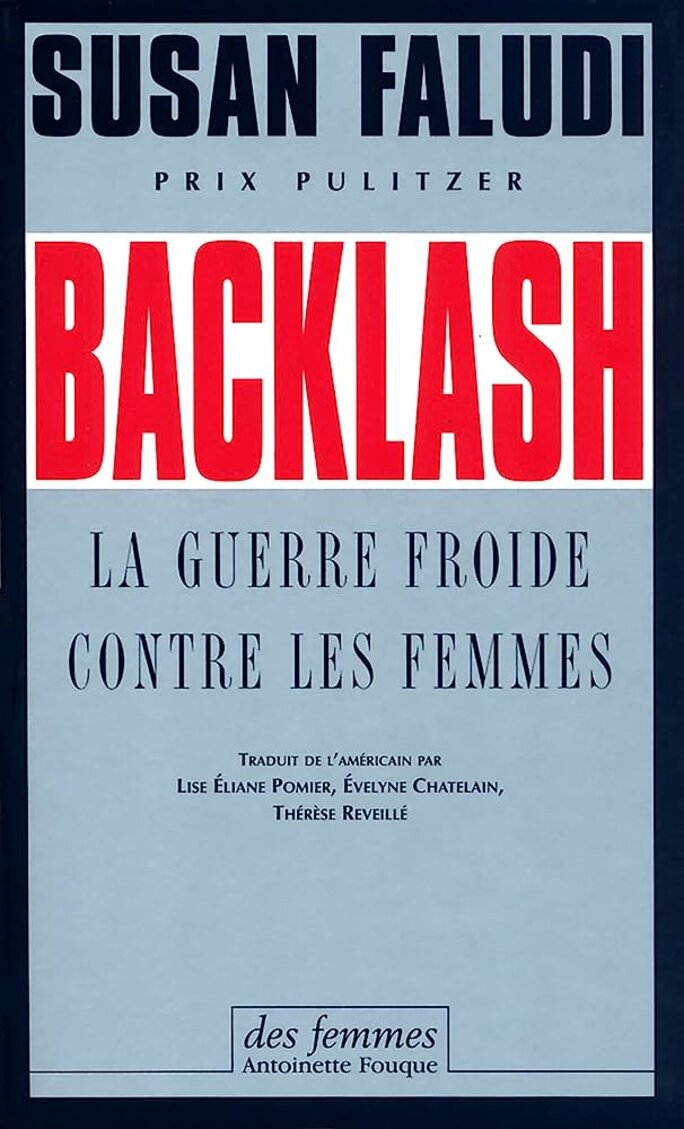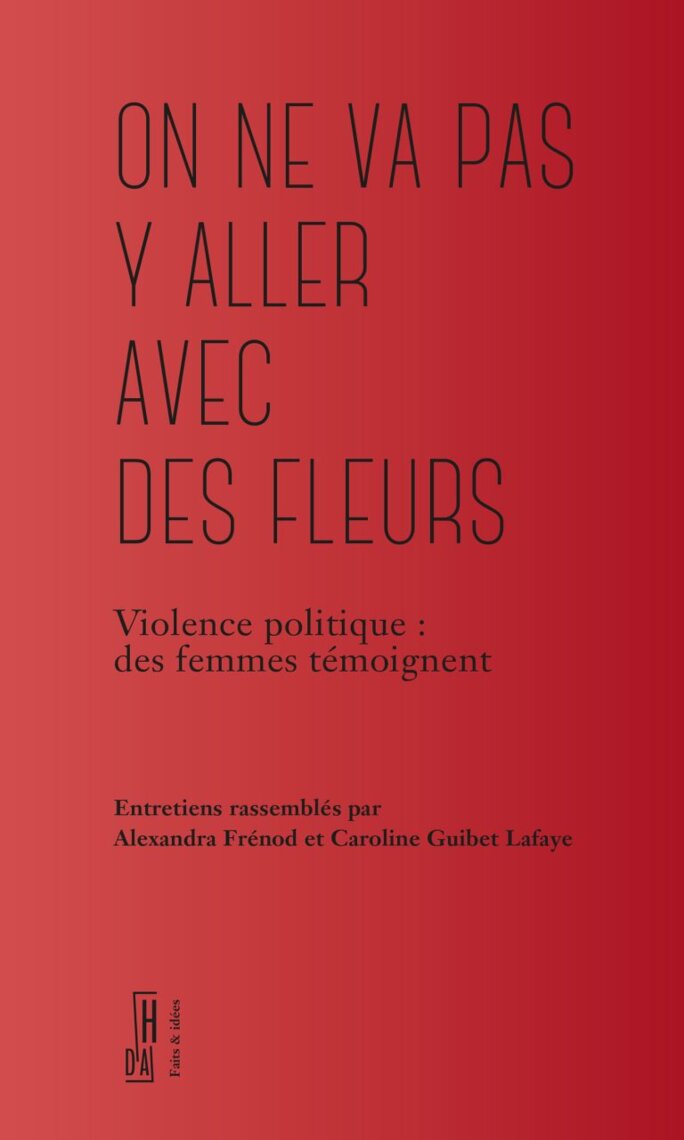“It wouldn't be easy to say when and how the revolution started, after the first #MeToo hashtag, or when hundreds of sex workers occupied Saint-Nizier church in Lyon in 1975, or when the black feminist Sojourner Truth got up at the Convention of white women at Akron [in Ohio] in 1851 and powerfully declared 'Ain't I a woman?', supporting freedom and the right to vote for racialised women for the first time in history.
“It could be a little earlier, or a little later. It depends on whether one looks only from an individual or cosmic perspective, a national or a planetary one, and whether one feels part of a history of resistance that preceded it and which this continued. On the other hand, it is possible to feel the jolt that it produces in the body it passes through.”
These lines by Paul B. Preciado from his latest book 'Dysphoria Mundi', published by Anagrama, sum up the situation today with this contemporary feminist moment. It is impossible not to notice the “jolt”, whether one feels it profoundly, celebrates it publicly, fears it discreetly or fights it openly.
The jolt comes from a movement that has politicised the body, a movement peculiar to eras of huge change. “This bloody amazing revolution that's taking place is bigger than the pain in my back, greater than the grief of romantic love. I feel loved as a political body, in a way that's beyond individual feelings,” Preciado writes.

Enlargement : Illustration 1

This politicisation of the body is focused around three main axes. First of all there is the fact that, as the philosopher Camille Froidevaux-Metterie puts it in her contribution to the collective work 'Moi aussi, MeToo au-delà du hashtag', published by JC Lattès in 2022, “what we have understood with #MeToo, and we rarely grasp the importance of this revelation, is that despite radical transformation of the female status in social terms and all the principles of equality that are set in stone in legislative texts, women had remained available bodies”.
Secondly, and to continue with the academic's words, there is hope that this movement is about “a lot more that just the denunciation of sexist and sexual violence” and that it “heralds a profound resetting of relations between women and men, in other words that it heralds the possibility of overturning the patriarchal system too”.
It's an historic era and my joy is complete.
Finally, there is the fact that this feminist revolution is part of a broader shaking up of gender roles, such as gender and sexual identity. To quote Paul Preciado again: “To carry out a feminist revolution doesn't just mean reaching a critical mass in which all women (racialised, lesbians, disabled, sex workers, migrants, workers, trans) will embrace as theirs the demands for freedom and equality that come from white, Christian, middle-class women in heterosexual European or North American society. In fact, not only is it unnecessary for the revolution to express itself in just one way it is, on the contrary, only through having different forms of expression that we can keep our revolutionary process away from the dangers of totalitarianism, from the repression of dissidence and the purification of the feminist issue.”
However, history teaches us that a revolution, sometimes even before it is recognised as such, faces numerous pitfalls of varying types: obstacles, failing to achieve its aim, being overhyped, getting hijacked....
In her 2019 book 'Mes bien chères soeurs' (Le Seuil), published in English under the title 'Sisters, Are You with Me?', novelist Chloé Delaume wrote: “It's an historic era and my joy is complete.” However, exactly half a century earlier, in 1969, the philosopher and novelist Monique Wittig, whose work was for a long time largely forgotten but is now being republished and reread more and more, stated in Les Guérillères: “They say that a great wind is sweeping the earth. They say that the sun is going to rise.”
The feeling that times are changing when it comes to relations between the sexes and between genders does not therefore yet mean that a rosy feminist future has finally and definitively dawned. There are at least three reasons for this. One is the fear that the subversive nature of the current revolution has been defused. Another is concern that it won't achieve its goals. And finally there is the threat of a backlash and counter-revolution, based around the narrative that some aspects of this revolution have been “excessive” and/or that it is following routes that are incompatible with a programme of emancipation.
A revolution defused?

The first kind of criticism combines claims that the revolution has been hijacked and institutionalised and become overly academic. In a book entitled 'Chères collaboratrices. Comment échapper au féminisme néolibéral' ('Dear colleagues. How to avoid neo-liberal feminism.') (La Découverte, 2023), Sandrine Holin draws on her experiences in the world of public affairs and finance. She considers that “feminism is today no longer a threat for capitalism, that's what makes it so popular, so visible in the media and public life. The economic, political and media powers provide the people with an inoffensive variant of an ideology that carries a revolutionary gene.”
Questioning whether 21st century feminism will not end up closer to the concept of a “start-up nation” than a “revolution”, Sandrine Holin gives the example of Dior tee-shirts that sell for more than 600 euros with capitalised slogans such as 'WE SHOULD ALL BE FEMINIST' - the title of an essay by writer Chimamanda Ngozie Adichie - or 'SISTERHOOD IS POWERFUL', the title of an anthology of feminist texts that were published in 1970, edited by Robin Morgan.
She also notes that while the “powerful feminists” that prominent French journalist and presenter Léa Salamé likes to promote include the author Virginie Despentes and former justice minister Christiane Taubira, they also the director of the European Central Bank (ECB) Christine Lagarde, PR boss Anne Méaux and Élisabeth Badinter.
The appropriation of this feminist era – sometimes with the use of gimmicky – is evident in numerous places: from the decision this year of the council at Pantin in the north-east suburbs of Paris to add the feminine 'e' and rename itself 'Pantine' to raise awareness of the inequality between the sexes, to the latest M&M campaign based on a packet of purple sweets containing just female characters and asking consumers to suggest the “names of women who are flipping the status quo”.
This sense of repackaging is also marked by an opportunistic publishing wave involving “inspiring” or “forgotten” women, but which is keener on reaching new markets than on updated theories. This opportunism is also evident in the massive production of podcasts setting out an infinite range of feminist views.

Enlargement : Illustration 3

In this respect, even if #MeToo has had the merit of bringing to our attention the words of those most affected, not all first-person accounts about negative sexual interactions or the side effects of masculine domination are enough on their own to automatically constitute what the academic Iris Brey calls in her book La Culture de l’inceste (Le Seuil, 2022) an “autotheory creating new feminist and activist knowledge” in the way that the accounts by Camille Kouchner, Vanessa Springora and Adèle Haenel did.
Meanwhile, some film and stage productions now seem to be inventing a new convention which restricts the subversive aspect of the movement as they surf a wave that they are more likely to undermine than help flourish.
Among many recent examples is Women Talking, the latest feature film by Sarah Polley which begins with a sentence written on a card: “What follows is an act of female imagination”. But in reality, rather than the vengeful feminist work of fiction suggested, the film is dull and gossipy and seems to be more than anything a marketing exercise targeting an audience with a theme that's in vogue.
And Lady Magma, a show put on by Irish choreographer Oona Doherty at the 2022 Avignon Festival, wants us to believe that all women – if they mime a few convulsions or scream out at night – are the inheritors of witches exterminated in the past.
In this kind of context you can get the feeling that the feminist tone of the moment is so omnipresent that it becomes fleeting, to use an expression from the teacher, militant and commentator Judith Bernard.
Each time the patriarchal order is questioned, Marlène Schiappa, the right-hand woman of the head of the police, makes sure that feminists don't step out of line.
On top of the risk of academic or commercial appropriation of the subversive element of modern feminism, there is also the danger of it being institutionalised as the current government steps up the number of pronouncements on the issue, while at the same ploughing ahead with pension reforms which everyone agrees will be unfavourable to women.
The academic Louz, one of the founders of Nta Rajel?, a feminist and decolonial collective, attacks what she sees as the gap between the words and deeds of the Macron government in general and of the media-friendly (now former) minister Marlène Schiappa in particular, when the latter was supposed to represent a feminist symbol of the president's first term of office.
With each new wave of #MeToo, she writes in the collective work Moi aussi. MeToo au-delà du hashtag (JC Lattès, 2022), “...every time the patriarchal order is questioned, Marlène Schiappa, the right-hand woman of the head of the police, makes sure that feminists don't step out of line and impose great changes, and what better way to do that than put to herself in charge of the problem, even if this means never providing a solution”.
A revolution impeded?
The second kind of criticism stems from the feeling that the current revolution will not achieve its aims, both because it will be reduced simply to being about sexist and sexual violence, and because the fight against both of these remains ineffective - or at least, insufficient. In her recent work 'Futur·es. Comment le féminisme peut sauver le monde' (Allary éditions, 2022), journalist Lauren Bastide, creator of the successful podcast 'Le Poudre', is quite blunt: “#MeToo exhausts me. It chills me to have to write that. It could be wrongly interpreted.”
But, she continues, “if this movement disheartens me it's because I'm waiting in vain for the moment where it will reroute our struggles towards radical change in society. #MeToo has remained what it was at the start: a single-sex talking circle where the victims find relief in 'making a complaint' and, in the best cases, a little empathy and support”.
In other words, as Morgane Merteuil, a theorist and former secretary of the sex workers' union STRAUSS, notes starkly: “This reduction of feminism to a fight against sexist and sexual violence saddens me in terms of how it limits our imaginations and political perspectives. What do we want? We want nice guys....”
If the aim is not merely to punish male sexual domination but to end it, feminism must address questions that many feminists would rather avoid.
In reality this criticism has two sides to it: reducing #MeToo to a fight against sexist and sexual violence and restricting that fight to a dimension that is just about punishment or even jail time. To follow the words of sociologist Irène Théry in her work 'Moi aussi: La nouvelle civilité sexuelle', Le Seuil, 2022) “in France we think that the stakes in #MeToo are uniquely about listening to the suffering of victims and the repression of sexual violence, whereas in reality the movement is also part of a different and much more massive transformation: reconfiguring the distinction between the permitted and the forbidden, and contributing to the establishment of new reference points and common values, new behaviour; in a word, a new sexual civility for everyone.”
Amia Srinivasan, a professor of social and political theory at Oxford University, is explicit in her recent book 'The Right to Sex' (2021, Bloomsbury) about what is at stake in the current revolution. “...If the aim is not merely to punish male sexual domination but to end it, feminism must address questions that many feminists would rather avoid: whether a carceral approach that systemically harms poor people and people of colour can serve sexual justice; whether the notion of due process – and perhaps too the presumption of innocence – should apply to social media and public accusations; whether punishment produces social change. What does it really take to alter the mind of patriarchy?”
A revolution opposed?
The last kind of criticism comes from people hostile to the current revolution. While a movement can't be held accountable for any backlash it might induce, it is nonetheless necessary to thwart the counter-revolution's methods and rhetoric. History teaches us that all emancipatory eras and women's movements provoke reactions which seek to slow down, snuff out or even roll back the advances being made.

Enlargement : Illustration 4

In her 1991 book 'Backlash: The Undeclared War Against American Women', Susan Faludi looked in detail at how the 1980s were a backlash against the independence that women had won during the 1970s. The idea was put about that while the feminist fight for equality had been largely won, women had never been so unhappy.
At the time many in the media propagated the received wisdom that women who worked were less fertile, would never manage to find husbands or were exposing children left with childminders to harmful psychological effects. And Hollywood produced films such as Fatal Attraction, portraits of women scared of being single, portraying a completely different image from that of the single and independent women of the 1970s.
There was a similar phenomenon 30 years earlier when Betty Friedman in her 1963 best-seller 'The Feminine Mystique' – translated into French in 1964 by Yvette Roudy who would become the minister for “women's rights” under President François Mitterrand - attacked the way in which advertising, women's magazines and also a whole section of psychoanalysis sought to construct a happy image of a woman in the home. Women were, of course, now educated but the stereotype suggested they were still devoted to looking for and then satisfying a husband. This social construct came just after a world war which had been marked by women's economic, psychological and legal independence.
Would such a backlash be possible today now that women have reached the highest levels in the worlds of media and culture? And when Hollywood – and in particular Disney whose animated films have contributed to imposing a particular representation of women in the imaginations of millions of children - has now understood the existential and economic need to be interested, even if is sugar-coated, in the demands of minorities who have for a long time been forgotten on the screen?
One can hope that the greater media diversity, the less widespread control of men over cultural industries and the breakthrough of feminist theory and literature addressing all strands of society can protect the movement from a backlash similar to that which occurred in the 1950s or the 1980s.
But the recent example in France of a male media offensive, represented by the failed far-right presidential candidate and polemicist Éric Zemmour and conducted by the media empire of businessman Vincent Bolloré, reminds us that the cultural industries and key parts of the communications sector remain largely in the hands of men with conservative and even reactionary stances.
The current destabilisation of the male order is such that the resistance to #MeToo risks going further than just a cultural battle – and ends up using other weapons. This is the fear raised by the actions and misogynist manifesto of Elliot Rodger, who carried out a massacre at Isla Vista in California in 2014, and who became in the eyes of his imitators a symbol of so-called male 'resistance' to the similarly imaginary seizure of power by women.
The preferred narrative of any counter-revolution has always been that it stands against the supposed 'excesses' of the current revolution, seeking to suggest that the latter is creating a 'reign of terror', as in the French Revolution. One can put forward at least two arguments against this widespread idea.
First of all there is the fact that, if one dares to quote Mao Zedong, a “revolution is not a dinner party” and that shaking up a world cannot be done gently. Indeed, a recently-published book from feminist publishers Hors D'Atteinte is called 'On ne va pas y aller avec des fleurs' ('We're not taking flowers').

Enlargement : Illustration 5

That work is a collection of accounts from women in groups that have resorted to armed political violence. But the academics who wrote the foreword demolish the general idea that a feminist revolution would necessarily be a feminine revolution, in the hackneyed and stereotypical meaning of that term, while noting that radicalism and political violence are less accepted from women than from men.
We either “accuse these activists of having lost themselves on a path which is not theirs, and in doing so assign them an ideal of 'natural, feminine gentleness'”, write the co-editors of the book, Alexandra Frénod and Caroline Guibet Lafaye, or “one eroticizes them by mingling their activism with their sexual lives”.
We can also point to the reminder from legal sociologist Irène Théry in her recent work 'Moi aussi: La nouvelle civilité sexuelle', that to “highlight #MeToo … doesn't in any way imply a denial that some dilemmas may arise, that some drift is possible, that some opposing feminists might clash (as was exactly the case in the 1970s...), that some people might try to use this social cause to settle personal scores, or that the social change itself might sometimes become violent, when a move towards social purification and the selection of scapegoats surfaces in society.”
To put it another way, any tension that the feminist moment might cause definitely does not stem – as one sometimes hears claimed – from the fact that the current revolution is somehow going “too far”, to a point where 'feminism' becomes confused with 'McCarthyism', as suggested by the former national secretary of the Europe Écologie-Les Verts green party, Julien Bayou.
The playwright Bertolt Brecht had a ready response to those who worry about an uprising turning to excesses before they think about its process and causes; he pointed out that we “talk of a river that sweeps everything away as violent, but nobody calls the banks that keep it in check violent”.
Instead, the tension lies in the idea that a revolution is judged not only by the legitimacy of its struggle but also by the methods it uses and the paths it choose. A liberation movement that perpetuates certain practices of the dominant order (indifference to social and ethnic inequalities, the central importance given to repression and punishment, ostracism...) would be forgetting the famous phrase pronounced nearly half a century ago by the black lesbian poet Audre Lorde during a conference dedicated to Simone de Beauvoir's seminal book Le Deuxième Sexe: “The master's tools will never dismantle the master's house.”
---------------------------------------------------------------------------
- The original French version of this article can be found here.
English version by Michael Streeter


